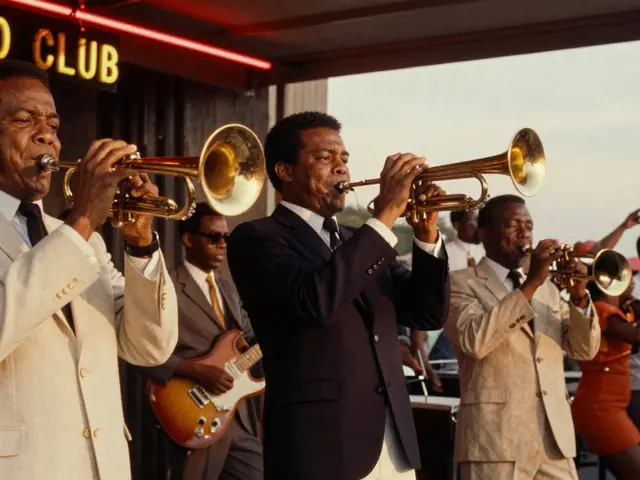The Everlasting Appeal of Rock Music
Since its emergence in the mid-20th century, rock music has boldly marked its territory in the cultural landscapes of the world. Unlike many other music genres that peaked and then faded into obscurity, rock music has demonstrated a unique ability to evolve while still maintaining its core characteristics: rebelliousness, raw emotion, and an emphasis on instrumental expertise. One could argue that rock's appeal lies in its capacity to voice the feelings and attitudes of a generation. Yet, it also possesses a timeless quality, finding new listeners in every era.
From the electrifying performances of Chuck Berry to the poetic musings of Bob Dylan, rock music has always provided a platform for innovative soundscapes and profound lyrical content. The 60s and 70s are often considered the golden age of rock, producing bands like The Beatles, The Rolling Stones, and Led Zeppelin, whose music continues to be discovered and cherished by young listeners today. The staying power of these songs is not merely nostalgia; it is a testament to the music's intrinsic quality and its ability to express universal emotions and experiences. Deep dives into the lyrics of these timeless tracks often reveal themes of love, resistance, and freedom, echoing the sentiments of not just one but multiple generations.
Moreover, the influence of rock extends beyond just the music. It has spawned an entire culture of fashion, language, and lifestyle that have become indicators of broader societal trends. Rock concerts, with their characteristic energy and communal spirit, remain a rite of passage for many. This cultural phenomenon demonstrates the genre's unique ability to build communities and foster a sense of identity among its followers—qualities that few other music forms can claim. Bands like Green Day and Nirvana brought rock into the new millennia, resonating with the angst and spirit of modern youth, much like their predecessors did.
The Evolution of Rock: Adapting to the Changing Soundscape
What is truly fascinating about rock music is its capacity for reinvention. Each decade witnesses a new wave of artists and bands that reinterpret the genre, adding new layers and textures while maintaining the fundamental aspects of rebellion and authenticity. The transition from the classic rock of the 60s to the psychedelic rock of the 70s, and later to the glam and hair metal of the 80s, showcases this evolutionary trajectory. Artists like David Bowie and Queen used theatricality and visual elements to add depth to their music, engaging with audiences in innovative ways.
The grunge movement of the early 90s, with bands such as Pearl Jam and Soundgarden, marked another significant shift. It brought an edgier, raw sound that contrasted sharply with the more polished productions of the 80s. This was a musical expression of disenchantment with societal structures, resonating deeply with the youth of that time. The adaptability of rock is evident in its absorption of various musical influences, including folk, blues, and even electronic, ensuring its relevance in a rapidly changing musical landscape. Furthermore, the digital age has transformed how we consume music, yet rock has maintained its presence on platforms like Spotify and YouTube, with classic tracks amassing millions of streams alongside modern hits.
Examining this adaptability, one might encounter thoughts from legendary artists on the genre's longevity.
'Rock 'n' roll is here to stay, it will never die. It was meant to be that way, though I don't know why,' this quote from an early rock 'n' roll song by Danny & the Juniors encapsulates the resilient spirit of rock music.
In conclusion, examining the arc of rock music's history offers an intriguing glimpse into the cultural psyche of the past several decades. It's clear that while the sound might evolve, the core spirit of rock—one of defiance, emotion, and raw energy—remains unwavering. This genre is not just a collection of sounds but a living, evolving culture that continues to resonate across the globe, illustrating its undying appeal and adaptability.






